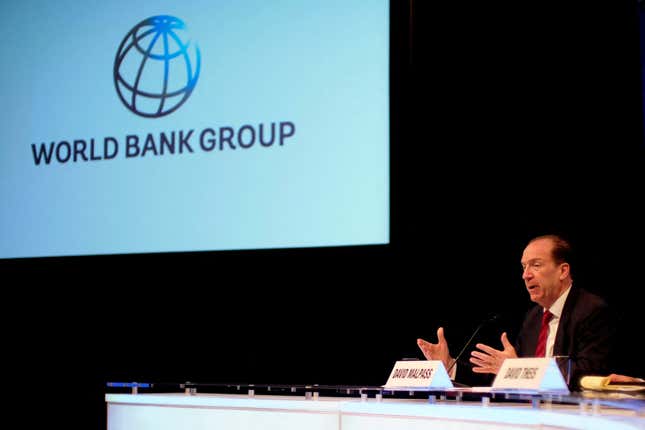
David Malpass has stepped down as president of the World Bank, with a year still left before the end of his five-year term.
Appointed by US president Donald Trump in 2019, Malpass, an economic analyst, resigned months after he faced criticism for being a climate-change denier. In September, during an interview, he had dithered and declined to agree that fossil fuel consumption is warming the planet.
Malpass later acknowledged manmade climate change and improved climate financing at the World Bank, doubling its climate commitments to $32 billion. In his resignation statement, Malpass said he quit early to “pursue new challenges” and “provide opportunity for a smooth leadership transfer.”
His retirement coincides with efforts by Janet Yellen, the US treasury secretary, to reform the World Bank and increase climate-related loans. In mid-April, Yellen said, World Bank governors will adopt updates to the institution’s vision and mission
Who should run the World Bank?
Yellen has said that the choice of the next head of the World Bank, based in Washington DC, would be “merit-based.” But does that include non-American candidates?
Traditionally, the US chooses World Bank presidents, and its choices have invariably been American bankers or economists. (The head of the International Monetary Fund, by contrast, has always been European, because the choices of western European nations are heavily weighted in the selection process.) These conventions are outdated, argued Mark Sobel, the chair of the US Official Monetary and Financial Institutions Forum, in 2019.
Not only are US priorities increasingly out of step with the goals of international financial institutions, Sobel wrote, but the choice of a non-American bank president would counter regionalism. The World Bank’s global credibility would rise. It could push back against the kind of opaque bilateral financing (such as Chinese official lending) that tips developing countries into unsustainable debt, Sobel added.
The US is interested in global issues like poverty, climate change, and pandemics, and it wants the World Bank to lead on these issues, Charles Kenny, an economist and senior fellow at the Center for Global Development, told Quartz.
“It would be great for the US to put its money where its mouth is and say, as part of wanting the World Bank to step up and global leadership, [that] we’re going to make sure that the leader of the institution is the best person we can find globally, not on the basis of having a US passport,” Kenny said.
The World Bank gives developing nations billions every year; in 2022, it committed $104 billion to projects around the world. But the bank has been criticized for not sufficiently helping climate-impacted countries and for burdening poor countries with debt. A non-American head would do more than symbolically herald a new world order; they would also come with a different understanding of the most urgent priorities facing developing, climate-hit nations today.
It doesn’t, however, seem like the Biden administration is in the mood to break the unwritten code of the World Bank presidency. Rajiv Shah, the head of the Rockefeller Foundation; Samantha Power, the former US ambassador to the UN; and Indra Nooyi, the former CEO of Pepsico have all been floated as potential replacements for Malpass by global development experts—and they’re all American.